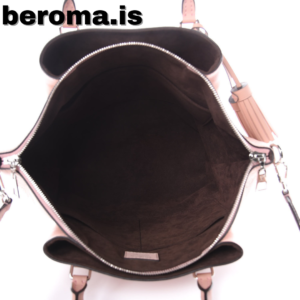 There’s no denying the allure of luxury goods. For fashion aficionados, the thought of owning an iconic Louis Vuitton bag can be a lifelong dream. However, as luxury items come with an exorbitant price tag, many consumers explore the depths of the resale market to fulfill their desires. Selling a Louis Vuitton (LV) bag, even a replica, may seem like a quick fix for some, but it’s a path lined with complexities.
There’s no denying the allure of luxury goods. For fashion aficionados, the thought of owning an iconic Louis Vuitton bag can be a lifelong dream. However, as luxury items come with an exorbitant price tag, many consumers explore the depths of the resale market to fulfill their desires. Selling a Louis Vuitton (LV) bag, even a replica, may seem like a quick fix for some, but it’s a path lined with complexities.
In this thorough exploration, we’ll walk through the intricate world of luxury fashion replicas and the unlikely destination – the pawn shop. We’ll scrutinize the legal and ethical considerations, guide you through the process of identification and sale, and shed light on the associated risks and benefits. Luxury replicas pose a unique challenge in the resale world, and understanding the intricacies is not only crucial for sellers, but also an eye-opener for buyers in search of authenticity.
Understanding Replica LV Bags
Replica LV bags are counterfeit versions of the iconic Louis Vuitton handbags. They imitate the design, logos, and overall aesthetic of the original LV bag with the intention to deceive. The production and sale of luxury replicas are illegal in most countries and often associated with criminal networks engaged in counterfeiting and intellectual property theft.
The allure of a replica bag lies in its superficial resemblance to the real deal, often at a fraction of the cost. However, owning or selling such items can have severe legal consequences, not to mention the ethical implications of supporting illegal activities. Buyers looking to purchase an LV bag should always confirm the authenticity to avoid inadvertently supporting the counterfeit market.
Identifying Authenticity in LV Bags
While the difference between authentic LV bags and their replicas might seem subtle to the untrained eye, several telltale signs can help distinguish between the two. Authentic LV bags are crafted with the utmost attention to detail, using high-quality materials and precision in their construction. Common characteristics of authentic LV bags include the quality of the monogram, the consistency of the stitching, the hardware, and the date codes.
Pawn shops, in particular, have stringent policies and experts on hand to verify the authenticity of luxury items. They often look for these nuanced signs and may use advanced methods such as UV lights to identify the materials used. It’s important to note that attempts to mislead the pawnbroker by providing false information or disguising replicas as genuine can lead to serious legal repercussions.
The Process of Selling to a Pawn Shop
If you find yourself contemplating selling a luxury item, whether authentic or a replica, to a pawn shop, it’s crucial to understand the process in its entirety. The first step is to assess the condition of the item and research its potential value. Next, you’ll need to visit the pawn shop, provide necessary documentation, and agree on a price. If a replica is detected during the evaluation, the process will halt, and you may be faced with tough questions and potential legal ramifications.
Transparency is key when selling any item, especially a luxury bag. Avoid using false certificates of authenticity or knowingly hiding the true nature of the item – the temporary financial gain is not worth the risk.
Benefits and Risks
The benefits of selling a replica LV bag to a pawn shop are mainly rooted in potential financial gain for the seller. In contrast to the black market, pawn shops operate legally, and transactions are recorded. This can offer a level of safety and assurance, however, there are still risks involved. Legal complications, reputational damage, and the possibility of being blacklisted by pawn shops are significant deterrents. Sellers can also morally struggle with the knowledge that they knowingly attempted to deceive a buyer or seller.
Alternatives to Selling Replicas
For those looking to sell or buy pre-owned luxury items ethically and legally, there are alternatives to the pawn shop. Reputable consignment stores and online platforms, such as The RealReal and Vestiaire Collective, offer secure transactions, expert verification services, and a platform for luxury resale that does not involve deceptive practices.
Additionally, consider the long-term impacts of branded goods by investing in items that hold their value or even appreciate over time. Pre-owned marketplaces cater to a wide range of consumers, making it easier to find a buyer for your luxury item.
Conclusion
The temptation to sell a replica LV bag, or any counterfeit luxury item, is understandable, especially in the face of financial need or shifting tastes. However, the choice to engage in transactions involving replicas should be made with a full understanding of the consequences. Luxury items, whether original or counterfeit, carry significant weight in the eyes of the law and society.
If the lifespan of your LV bag in your collection has come to an end and you’re looking to part ways with it, the goal should always be an honest and legal resale. Educate yourself, properly assess the risks, and opt for transparent transactions that contribute to the integrity of the luxury market. In the end, ensuring that the bag is sold in a manner that respects its true nature – as a luxury commodity – is not just a legal obligation, but a moral responsibility.